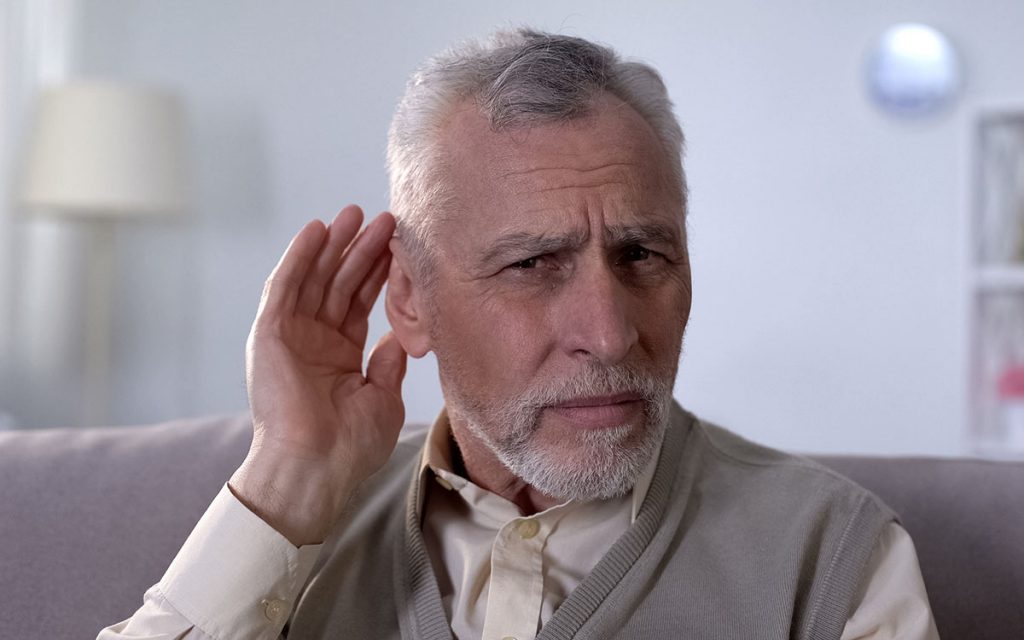Your last family dinner was frustrating. Not because of any intra-family drama (though there’s always a little bit of that). No, the source of the frustration was simple: it was noisy, and you couldn’t hear a thing. So you didn’t get the details about Nancy’s promotion, and you didn’t have a chance to ask about Todd’s new puppy. It was frustrating. Mostly, you blame the acoustics. But you can’t completely discount the possibility that maybe your hearing is starting to go bad.
It can be incredibly challenging to self-diagnose hearing loss (that’s why, generally, it’s not recommended). But there are some early warning signs you should keep on your radar. When enough of these red flags spring up, it’s worth making an appointment to get tested by a hearing specialist.
Early signs of hearing loss
Not every sign and symptom of hearing loss are obvious. But if you happen to see your own experiences reflected in any of the items on the following list, you just might be experiencing some level of hearing loss.
Some of the most common early signs of bad hearing may include:
- You have a hard time following conversations in a crowded or noisy place. This is precisely what occurred during the “family dinner” example above, and it’s often an early sign of trouble with hearing.
- You have trouble hearing high-pitched sounds. Maybe you find your tea kettle has been whistling for five minutes without your knowledge. Or perhaps the doorbell rings, and you never notice it. Early hearing loss is usually most noticeable in specific (and often high-pitched) frequencies of sound.
- You keep asking people to repeat themselves. This is especially true if you’re asking multiple people to slow down, say something again, or speak up. You may not even realize you’re making such frequent requests, but it can certainly be an early sign of diminishing hearing.
- You notice it’s hard to understand certain words. This red flag often pops up because consonants are starting to sound similar–or, at least, becoming harder to differentiate. Usually, it’s the sh- and th-sounds that muffled. Sometimes it’s the s- and f-sounds or p- and t-sounds that become conflated.
- Someone notices that the volume on your media devices gets louder and louder. Maybe you keep turning the volume up on your mobile phone. Or perhaps your TV speakers are maxed out. Usually, you’re not the one that notices the loud volume–it’s your kids, maybe your neighbor, or your friends.
- You hear some ringing in your ears: Ringing in your ears is called tinnitus (and, technically, tinnitus can be other sounds too: screeching, buzzing, humming, thumping, and so on). Tinnitus isn’t always associated with hearing problems, but it is often an early warning sign of hearing loss, so a hearing test is probably in order.
- You find that some sounds become unbearably loud. It’s one of the more unusual early warning signs related to hearing loss, but hyperacusis is common enough that you might find yourself encountering its symptoms. If specific sounds become unbearably loud (especially if the issue doesn’t resolve itself in short order), that could be an early hearing loss symptom.
- It’s suddenly very difficult to understand phone calls: People do a lot of texting these days, so you might not take as many phone calls as you used to. But if you’re having trouble understanding the phone calls you do receive (even with the volume turned all the way up), you might be confronting another red flag for your hearing.
Next up: Take a test
No matter how many of these early warning signs you may encounter, there’s really only one way to know–with certainty–whether your hearing is going bad: get a hearing test.
Generally speaking, any single one of these early warning signs could be evidence that you’re developing some kind of hearing impairment. A hearing assessment will be able to tell what level of impairment, if any, exists. And then you’ll be better prepared to find the right treatment.
This means your next family gathering can be much more enjoyable. Other than the drama, that is.



